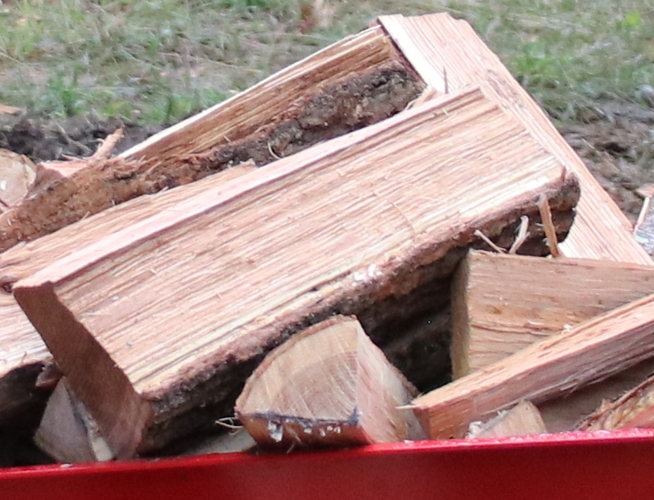BELLOWS FALLS — As a lifelong environmentalist who applauds the intent of the Affordable Heat Act (S.5), it pains me to point out a very big problem with the bill that is now cruising toward legislative approval: wood heat is far dirtier than coal, oil, and gas. And if you make fuel oil and propane more expensive, we Vermonters will burn more firewood.
Since 38% of Vermont homes are heated in part or full with wood, S.5 may well accomplish the exact opposite of its intended effect.
Research from various countries confirms the inconvenient truth that wood combustion releases large amounts of carbon dioxide, methane, and particulate pollution, all of which accelerate global warming. A study in Finland confirmed that burning wood to heat homes is a source of climate-impacting emissions of carbon dioxide and the least environmentally friendly solution.
French research looked at different ways to meet the growing demand for wood. There was no solution, as all outcomes would have reduced the ability of forests to absorb carbon dioxide. Other studies in Denmark and Australia have shown that burning wood produces methane and carbonaceous particles that, in turn, accelerate climate change.
* * *
If you ignore the climate-altering gases and particulate pollution issuing from our chimneys, wood energy offers many benefits.
Much of Vermont - 74% - is forested and, unlike our heating oil and propane purchases, the money we spend on firewood stays in our state and provides jobs.
Newer EPA-certified stoves produce less pollution but, given a replacement cycle of about 20 years, their installation will take a long time to reduce wood's total carbon dioxide emissions. And most importantly for low-income rural Vermonters, wood heating costs far less to install and operate than oil, gas, or electrically powered systems.
Vermont's Agency of Natural Resources Department of Forests touts wood heat as “sustainable,” and the current state plan for renewable energy calls for 35% of our thermal energy needs to come from wood by 2030. Automated wood heat technology via pellets is the tool that will enable us to reach that goal.
And we will generate lots of electricity, expanding our fleet of wood-fired commercial electric generating stations beyond the two already in operation, McNeil and Ryegate.
* * *
Increasing Vermont's energy independence is appealing, but the environmental downsides are hard to dispute.
According to Sami Yassa, a senior scientist with Natural Resources Defense Council's Climate & Clean Energy Program, “At the smokestack, wood emits more carbon dioxide than coal for every unit of electricity produced.” In fact, the Partnership for Policy Integrity, a U.S.-based group that advocates for data-driven environmental policies, finds that power plants that burn biomass emit 150% more carbon dioxide than those burning coal.
And as to renewability, a tree that is cut down can't capture carbon. Reforestation creates vulnerable monocultures of fast-growing trees. Writing in Yale Environment 360, an online magazine of the Yale School of the Environment, Fred Pearce explains that “long-maturing natural forests will eventually store typically 40 times more carbon than a plantation harvested once a decade.”
And if insects don't kill them before they mature, the rows and rows of seedlings that pellet manufacturers plant over their clearcuts will never grow fast enough to keep up with the voracious appetite for natural resources that is the hallmark of our species.
A documentary by Westminster West filmmakers Lisa Merton and Alan Dater, Burned: Are Trees the New Coal?, powerfully illustrates the damage done by the biomass energy industry and how it is greenwashed.
In 2018 The American Conservation Film Festival Committee awarded the film its Audience Choice Award, noting that it “elicited a powerful and passionate response from our audience this year with many saying they had no idea about this issue and its devastating impacts.”
* * *
Sadly, none of these facts will impede S.5's passage or Vermont's expanding subsidies of wood burning appliances and power plants.
Just as Texans, Saudis, and Russians love their oil and gas and the Chinese and Indians won't let go of coal, we Vermonters are happily married to our firewood. I say this as a wood burner myself who will lay in another couple of cords next winter if, as projected, the ironically named Affordable Heat Act will increase the already shocking cost (currently around $4.50 per gallon) of fuel oil.
But unlike Act S.5's proponents, I don't pretend that my heat source is good for the planet.
